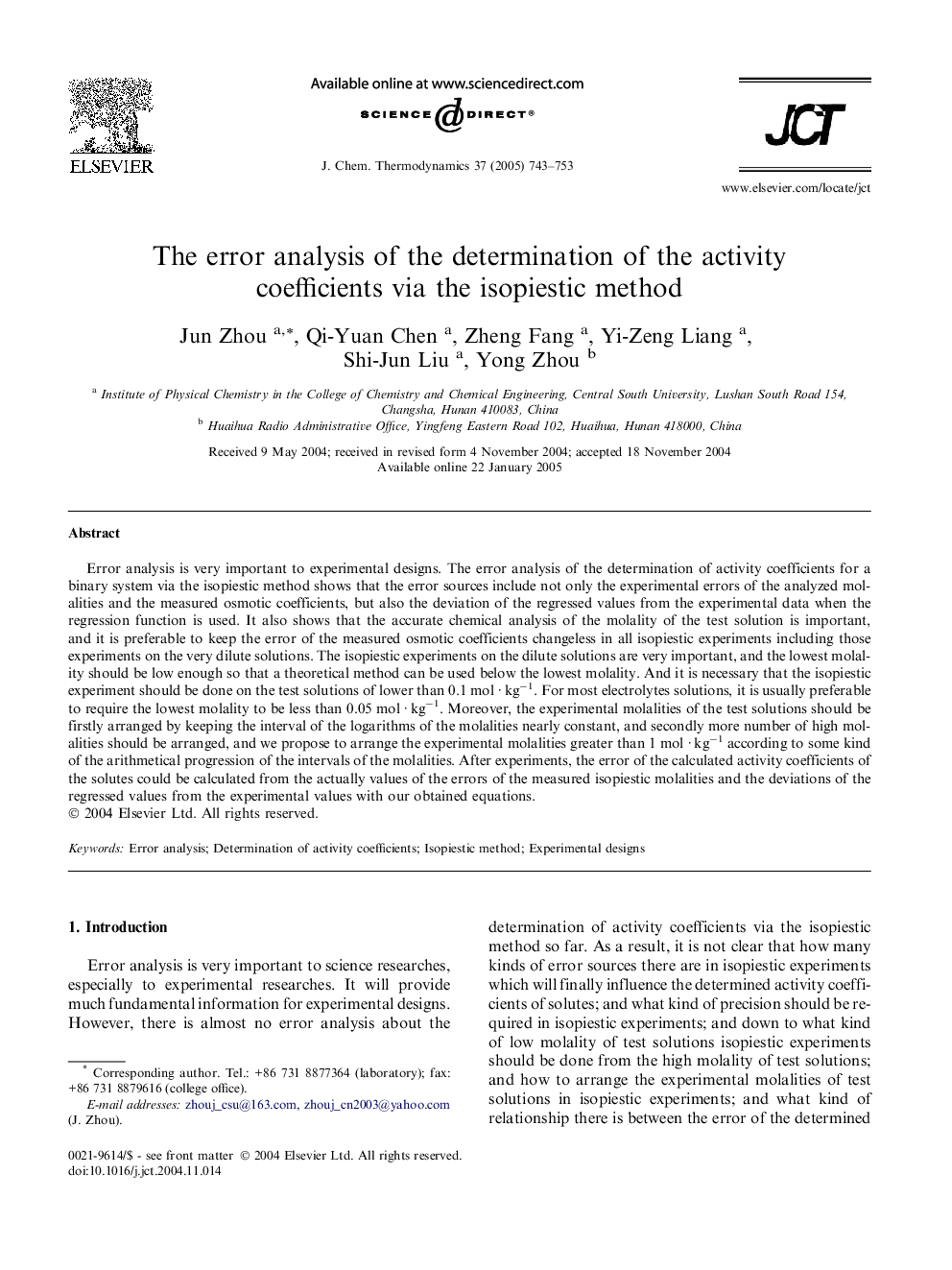| Article ID | Journal | Published Year | Pages | File Type |
|---|---|---|---|---|
| 9633565 | The Journal of Chemical Thermodynamics | 2005 | 11 Pages |
Abstract
Error analysis is very important to experimental designs. The error analysis of the determination of activity coefficients for a binary system via the isopiestic method shows that the error sources include not only the experimental errors of the analyzed molalities and the measured osmotic coefficients, but also the deviation of the regressed values from the experimental data when the regression function is used. It also shows that the accurate chemical analysis of the molality of the test solution is important, and it is preferable to keep the error of the measured osmotic coefficients changeless in all isopiestic experiments including those experiments on the very dilute solutions. The isopiestic experiments on the dilute solutions are very important, and the lowest molality should be low enough so that a theoretical method can be used below the lowest molality. And it is necessary that the isopiestic experiment should be done on the test solutions of lower than 0.1 mol · kgâ1. For most electrolytes solutions, it is usually preferable to require the lowest molality to be less than 0.05 mol · kgâ1. Moreover, the experimental molalities of the test solutions should be firstly arranged by keeping the interval of the logarithms of the molalities nearly constant, and secondly more number of high molalities should be arranged, and we propose to arrange the experimental molalities greater than 1 mol · kgâ1 according to some kind of the arithmetical progression of the intervals of the molalities. After experiments, the error of the calculated activity coefficients of the solutes could be calculated from the actually values of the errors of the measured isopiestic molalities and the deviations of the regressed values from the experimental values with our obtained equations.
Related Topics
Physical Sciences and Engineering
Chemical Engineering
Chemical Engineering (General)
Authors
Jun Zhou, Qi-Yuan Chen, Zheng Fang, Yi-Zeng Liang, Shi-Jun Liu, Yong Zhou,
